4-Point Play: Mark Pope's offensive and defensive philosophies
“I will not speak at all about our offensive schemes because they are top secret,” Mark Pope joked.
“It’s gonna be a long show,” Tom Leach responded.
Then Kentucky‘s newest head coach broke down the intricacies of his system and how he plans to incorporate it in Lexington for several minutes, the most detailed conversation we’ve had from a person sitting in his chair in years. It was refreshing and thought-provoking, welcoming basketball fans of all levels to learn the game with him as we enter a new era together rather than being told to refill our popcorn buckets and enjoy the entertainment from the stands where the non-experts belong.
Shoot, Pope even acknowledged that the fans are more fun at Kentucky because they know basketball.
“It’s actually super cool,” he said. “That’s why the fans are so fun here. When you guys crush me for making a bad decision, I’m like, ‘You know what? They’re right! That was really dumb to do.'”
It’s a bit hyperbolic considering Pope was nominated for a Rhodes Scholarship and went to medical school at Columbia and is widely known as a basketball savant. He’s got more Xs and Os knowledge in his pinky than most of us have in our entire bodies, but isn’t it nice to not have an us vs. them mindset for a change, fellow Basketball Bennies?
So what can fans expect from Pope philosophically on both ends of the floor?
“At Kentucky, we don’t come in second”
Let’s start with his opening introduction at Rupp Arena and work our way on from there. He quickly struck a chord with the fanbase when giving his general overview of how things would be moving forward in that same venue for games next season and beyond.
“You know that my team last year made the second most 3’s in all of college basketball — but at Kentucky, we don’t come in second,” Pope said to a roar of cheers. “My team last year had the fourth-most assists in the country, and at Kentucky we share everything. We’re going to be aggressive on offense, we will change it up and keep people on their heels on defense. And that’s — I heard a ‘defense wins games’ out here, that’s our plan. That is what we will work for every day, and we have no choice but to be successful.”
He added that what fans loved about Rick Pitino’s teams in the 90s — his own 1996 national championship squad included — will be back in Lexington.
“I will never be as smart as Coach P. I don’t know if I will be as fortunate to have those guys on the court, but we are taking a lot from Coach P’s DNA and growing into it,” Pope said. “I think he looks at us and thinks, ‘You copycat, man. Stop taking my stuff!’ If I can take anything from him, it would be the every-second desperate relentless fight on the court he inspired of us.”
Pope is a self-described basketball dork
Fast forward to his first call-in radio show on Monday where he got into the nuts and bolts of his philosophies on both ends, Pope admitted that he’s a bit of a nerd when it comes to the sport in general. He tries to stay ahead of the curve by watching the trends and diving into the analytics, never content with sticking to one identity while watching the game pass him by.
“I love studying the game of basketball, I love this game so much,” Pope said. “And it’s actually incredibly creative in a super dorky way — do we say that word anymore? It’s really a font of creativity. It’s been really fun to watch the evolution of the game.”
In the 90s, offensive basketball was post-oriented where you attacked space and forced rotations out of the post. Then it became a pick-and-roll dominated game, followed by an era of catching on the move. Today, it’s about “pushing the envelope of the game,” he says.
That’s how you get the product you see with his teams now.
“We’re putting two and three players in an inverted formation where they’re all in motion, all reading each other without the ball,” he said. “The game away from the ball has become so incredible. The Golden State Warriors have really pushed it, Steve Kerr has really pushed it. We’re all just like lemmings where we all follow each other off of the cliff. But it’s an exhilarating way to play, an elite level of teamwork right now.”
The non-stop motion is nothing more than cardio for some, and as tedious as it may feel at times, it’s always calculated. But that’s today’s game and how you make a living in the pros. So that’s how Pope rolls.
“You think about all of the thankless jobs in basketball, one of them is being a great cutter. Great cutters get paid, they get paid in the game of basketball right now,” he said. “A lot of times you end up running all over the floor and you don’t get the ball, but you’re creating space and actions and opportunities for teammates. That’s a huge fundamental key of our offense. It’s very heavy on cutting.”
An offense designed to punish
It’s no secret Pope likes a five-out approach with shooting and versatility at every position — again, that’s today’s game. More specifically, though, he wants to make life difficult on defenders by making them guard essentially everything past half court. Once they cross that line, everyone is a threat to shoot and score with no clear vulnerabilities you can leave uncovered.
In his own words, it’s an offense designed to punish.
“We love when teams react by switching because we just punish them. Heavy, heavy pace, transition is really important to us,” Pope said. “Forcing teams to guard 27 by 50 feet, that’s really important to us. … We want to force teams to guard a ton of space, 27 by 50 we feel forces teams to guard more space than anybody else in the country. We do that by really, really attacking from the three-point line, really, really playing deep corners, really, really playing KDAs where we’re getting all the way deep into the paint and playing behind us with a ton of motion.
“That’s kind of my offensive philosophy.”
A high-risk, high-reward defense
We know all about the offense, but what about Pope’s defensive approach? The Cougars were dynamite offensively finishing ranked No. 14 overall in KenPom, but No. 60 on the other end. That was after finishing No. 52 overall in ’23, No. 70 in ’22, No. 30 in ’21 and No. 60 in ’20.
Never elite, but also never abysmal. Always steady in that middle ground, some years better than others at BYU. But like Pope continues to do with the offense, he’s learning and adapting, adjusting with the times.
He compared his defensive start in Provo to Tony Bennett’s identity at Virginia, embracing who they were without much boom and bust. You knew exactly what you were getting every time out on the floor.
“We’ve been through a defensive evolution as a team and as a staff over the last several years. We started out for the first several years very much like a Tony Bennett vibe,” he said. “Very different defensive scheme, but kind of like — we’re gonna guard the way we guard every single night. And we’re gonna have very little slippage because of it. That’s an unbelievable philosophy, clearly. Tony Bennett has been one of the great coaches in America for a long time and he’s had unbelievable success.”
And then he dug into the data and found holes to take advantage of, becoming more of a risk-based defense in terms of switching things up over the course of a game depending on opposing offensive looks and approaches.
Pope calls them “punches,” knowing when to attack vulnerabilities and make sudden adjustments.
“For us, what we found over time is that we started to find little spaces in the game where we could change it up. As we kind of read the data of how it was functioning for us, we thought if we skillfully took opportunities — we call them punches,” he said. “Like a punch after a timeout or a punch after a dead ball or actually sometimes a punch in live play where we give a drastically different look, sometimes it can force teams to be a little bit on their heels where you’re not getting their most aggressive posturing.”
He feels it’s the best way to make teams uncomfortable and never allow them to settle into what they do best. Pope wants to keep opponents on their heels at all times.
“It’s a little bit high-risk, high-reward, but I feel like we’ve found a real pulse on it where we’re comfortable with it,” he said. “We actually chart where we’re able to keep teams off-balance and how many possessions we feel like there’s a lasting effect, even from just a one-punch possession. We’re spending a lot of time thinking about how we can distract teams from kind of just being downhill all the time.”
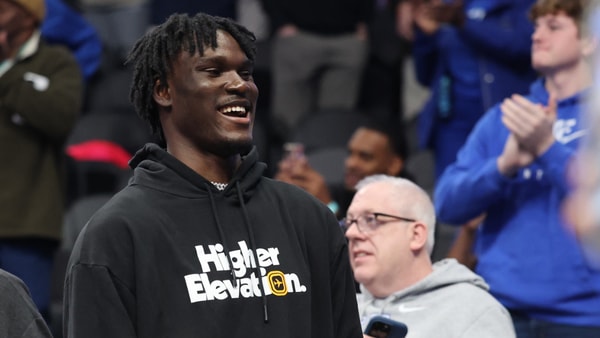
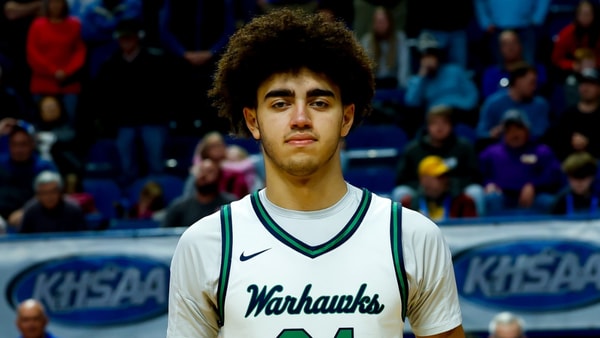
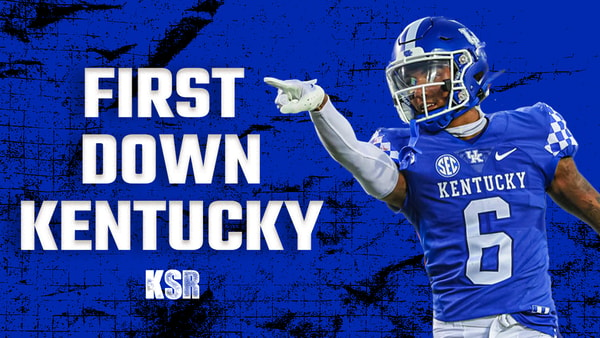

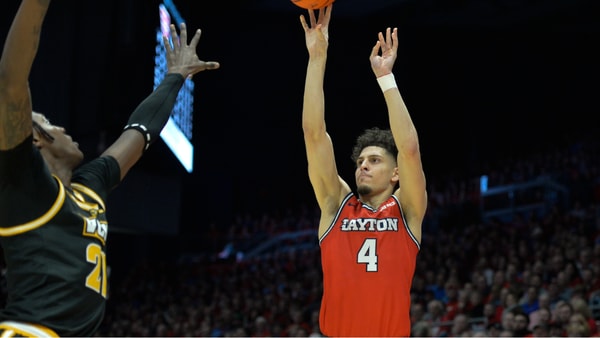
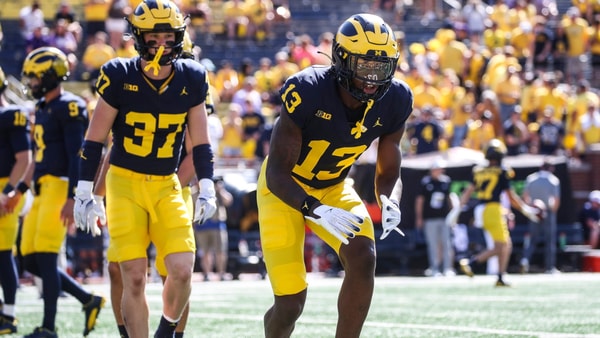
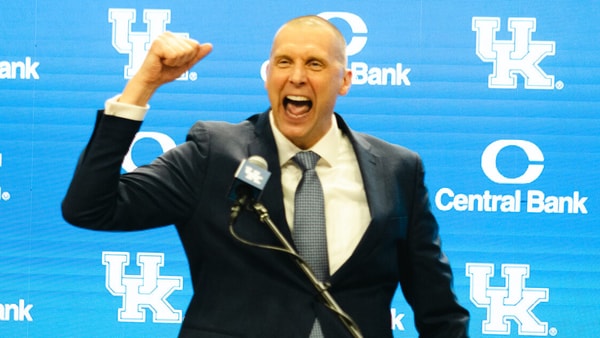
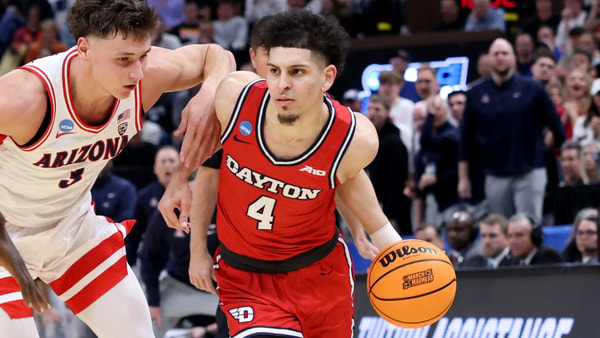
Discuss This Article
Comments have moved.
Join the conversation and talk about this article and all things Kentucky Sports in the new KSR Message Board.
KSBoard